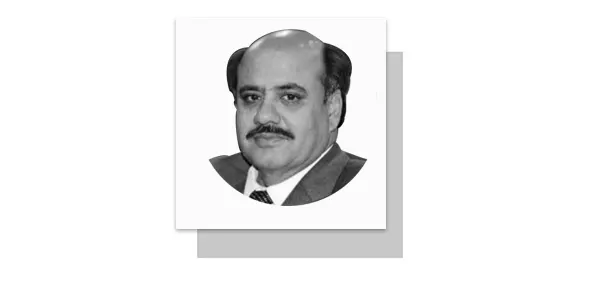THE Middle Eastern increasing volatility necessitates a just solution to the Palestinian crisis. Indeed, without the implementation of the United Nations resolutions and ensuring the right of the self-determination of the Palestinian people, the establishment of an endurable peace in the region is impossible. Israel’s genocide and land-grabbing approach have failed to ensure Israel’s one-state policy. Besides, it has exposed the Israeli defence forces’ limitations and the vulnerability of the natives of Israel. The contemporary asymmetrical brutal warfare between Israel and Palestinian-Hamas has shaken the consciousness of the international community. Today, many leaders have been advocating the implementation of the two-state solution—the sovereign state of Palestine and the sovereign state of Israel. They are convinced that the only way to establish a sustainable peace in the Middle East is to create the sovereign state of Palestine.
On 13 September 2024, Spanish Prime Minister Pedro Sanchez wrote on social network X, “The international community must take a decisive step towards a just and lasting peace in the Middle East.” He is convinced that the prerequisite for peace in the region is the establishment of a Palestinian sovereign state. Spain brought together Palestinian Prime Minister Mohammad Mustafa, the foreign ministers of Saudi Arabia, Egypt, Jordan, Qatar, and Turkiye—all members of the Arab-Islamic Contact Group for Gaza—and the heads of the Arab League and the Organization of Islamic Cooperation in Madrid on September 13, 2024. The meeting primarily aimed to end the Gaza war and take initiatives to resolve the causes of the conflict permanently.
The participants in last week’s Madrid meeting reiterated that the realistic solution to the Israel-Palestinian chronic conflict is a two-state solution. Notably, neither Palestinians nor Israelis are comfortable with the two-state solution. The Palestinian leaders have not demonstrated the will or the ability to reconcile with Jewish statehood. Notably, the Palestinians are divided into four groups with fundamentally different aims and objectives for the future of Palestine. Most Palestinians in the West Bank and Gaza aspire to create an independent Palestinian state in those territories. The second group is constituted of Palestinians residing in the refugee camps throughout the region and in the Diaspora who want to return to their homeland. The third group is made up of the Palestinian citizens of Israel, who seek equality within that country. Fourth is a group of Palestinians in east Jerusalem, who are caught between Israel and the Palestinian Authority, who want to see Jerusalem as the future capital of an independent Palestinian state. The division among the Palestinians negatively influences their pursuit of the right of self-determination.
The puzzle is that if the Palestinian leadership accepts the two-state solution, the Gaza Strip and the West Bank are too small territories to accommodate the migrant Palestinians or reside in the refugee camps throughout the region. The Palestinian Diaspora primarily aims to return to their homeland, regardless of its official status. Thus, the Palestinians wanted only Israel’s dissolution. Realistically, an independent Palestinian state seems less and less likely to happen with the destruction of Israel. Simultaneously, one state controlled by Israel would remain in a state of warfare. Prime Minister Netanyahu and his radicalized coalition partners in the Israeli Knesset (parliament) have been struggling to shun the possibility of a two-state solution permanently. They aimed to capture the entire Gaza Strip and West Bank and clear the areas from Palestinians for the sake of Jewish settlement. The conservative estimate reveals that there are 450,000 Israelis who have illegal settlements beyond the borders established after the 1967 war. If Israel accepts the Palestinian sovereign state recognition, the Netanyahu government would have to hand over 60 percent of the territory of the West Bank to the Palestinian Authority so that Palestinian cities and towns can grow. It would be a political suicide for him.
The Biden administration’s commitment to the status quo, i.e., support for a strong Jewish state and strengthening the Abraham-Accord initiatives leading to an eventual negotiated solution to the Israeli-Palestinian conflict, have immensely deteriorated the situation, resulting in a present contemptuous Gaza war. The Israeli armed forces’ brutality and Palestinian-Hamas resistance caused nearly forty-two thousand fatalities. Besides, the war could horizontally and vertically escalate. Thus, the entire region is on the powder keg. There is a need for an immediate ceasefire between Israel and Palestinian-Hamas and the stakeholders of the regional stability ought to reinvigorate the process for the establishment of a viable Palestinian sovereign state. On May 28, 2024, Spain, Ireland and Norway formally recognized a Palestinian state comprising the Gaza Strip and the West Bank. Russia and China have endorsed the two-state solution and they support the establishment of an independent Palestinian state. To conclude, it is time to accept the two-state solution to honour the right of self-determination of the Palestinian people and restore sustainable peace in the Middle East.
—The writer is Prof at the School of Politics and International Relations, Quaid-i-Azam University.
(jaspal_99@hotmail.com)










